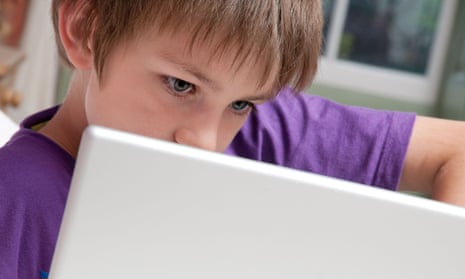Children should be taught in schools how to spot fake news, the Organisation for Economic Co-operation and Development’s education lead has said.
Andreas Schleicher said the ability to distinguish fact from fiction was essential in the modern age and teachers were well placed to provide guidance.
“Distinguishing what is true from what is not true is a critical skill today,” said the thinktank’s director for education and skills. “Exposing fake news, even being aware that there is something like fake news, that there is something that is written that is not necessarily true, that you have to question, think critically. That is very important. This is something that we believe schools can do something about.”
The issue of fake news has been to the fore since the bitterly contested US election campaign, when a number of made-up stories were widely circulated on social media.
Schleicher said it was not a matter of schools teaching a new subject, but of building skills to help discern the truth into all lessons, from science to history.
“In the past, when you needed information, you went to an encyclopaedia, you looked it up, and you could trust that information to be true,” he said.
Schleicher was speaking ahead of the annual Global Education and Skills Forum in Dubai, where he will put forward the OECD’s plans to test young people’s attitudes to global issues and different cultures, their analytical and critical skills, and abilities to interact with others.
He also raised concerns about what he considered to be another unhealthy modern development – the potential for social media to reinforce a person’s own viewpoint and not challenge their beliefs.
“Social media is designed to create an echo chamber,” he said. “We are likely to talk with people who are like us. Who think similarly to us.
“And that’s precisely, almost the antithesis, to global competency.”
Schleicher cited the example of young people from Europe going to fight for Islamic State, turning “the multi-religious, multi-ethnic powerhouses of the Middle East back to a kind of monoculture”.
He said: “That’s really I think an outcome of the thinking that there is only one truth and there’s only one way to live.
“I think that social media can reinforce that. The algorithms underpinning them tend to relate people to people who are similar, rather than creating spaces for people to discuss debate and find common ground.”
The computer-based “global competencies” tests will be taken by 15-year-olds around the world alongside the OECD’s current reading, maths and science assessments, which are conducted every three years.
The results of these assessments – and the rankings of about 70 countries and economies based on the results – are seen as important by governments worldwide, including in the UK.
The tests will be taken next year, with the results published in 2019.
Schleicher said the assessment was about “the capacity of young people to see the world through different perspectives, appreciate different ideas, be open to different cultures”.
